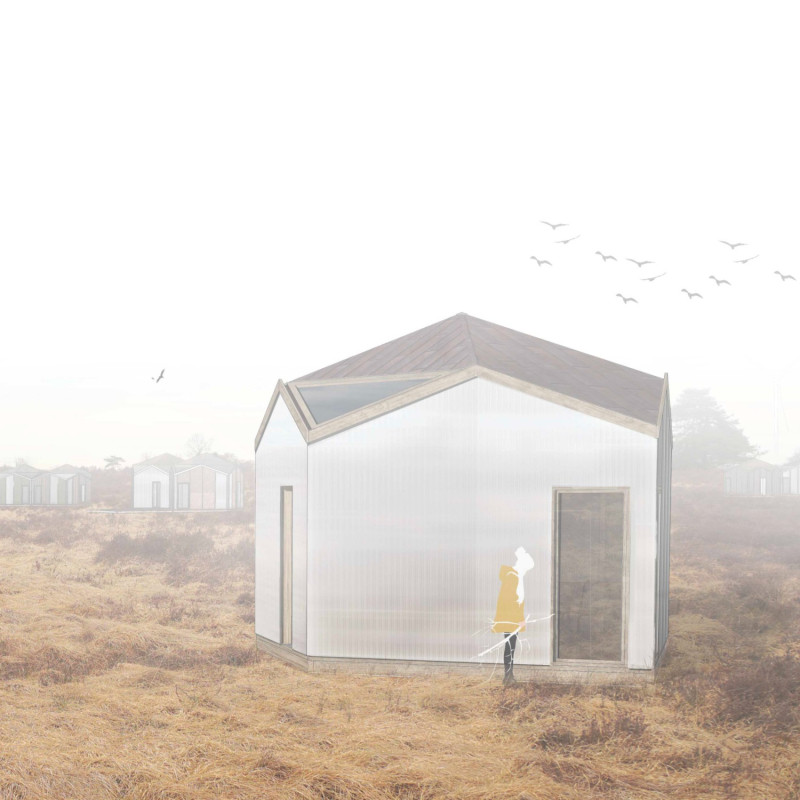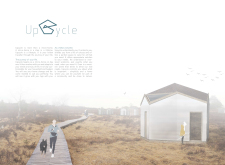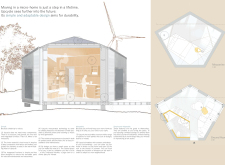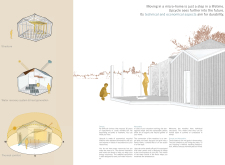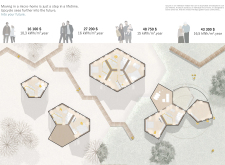5 key facts about this project
Functionally, the Upcycle Micro-Home is designed to cater to various living accommodations, including seating, sleeping, and workspaces, all within a compact framework. The overall design is centered around a modular approach, allowing residents the flexibility to customize their living spaces according to personal needs. The pentagonal shape not only provides aesthetic character but also enhances interior livability by maximizing natural light and promoting airflow. The integration of large windows creates a seamless connection between indoor and outdoor environments, fostering a sense of tranquility and well-being.
A significant focus of the project is its materiality. Constructed primarily from recycled materials, the Upcycle Micro-Home highlights a commitment to sustainability while showcasing how these resources can be transformed into livable architecture. The choice of insulation materials is crucial, ensuring energy efficiency and comfort throughout the seasons. This attention to material selection not only reduces waste but also demonstrates that environmentally responsible architecture can coexist with modern design sensibilities.
Unique design approaches are evident in various components of the micro-home. The use of adaptable partition walls creates multifunctional spaces that can easily transform based on daily activities or social gatherings. This design strategy addresses the evolving nature of living arrangements, allowing the home to grow with its inhabitants. Furthermore, the incorporation of sustainable technologies, such as water recovery systems and solar panels, positions the Upcycle Micro-Home as a forward-thinking solution to energy consumption, enabling residents to live largely off-grid.
Community interaction plays a pivotal role in the project. The architectural design includes shared spaces and walkways that encourage social engagement among residents. By fostering connections within a community context, the Upcycle Micro-Home promotes not just individual well-being but also a collective lifestyle that values relationships and cooperative living.
The Upcycle Micro-Home Project exemplifies a modern understanding of architecture and design, prioritizing environmental sustainability, adaptability, and communal living within compact structures. The project serves as a practical example for individuals and communities looking for efficient housing solutions that align with contemporary values. Readers are encouraged to explore the architectural plans, architectural sections, and detailed architectural designs to gain a deeper understanding of the innovative ideas that manifest within this project and how they can influence future living spaces.


